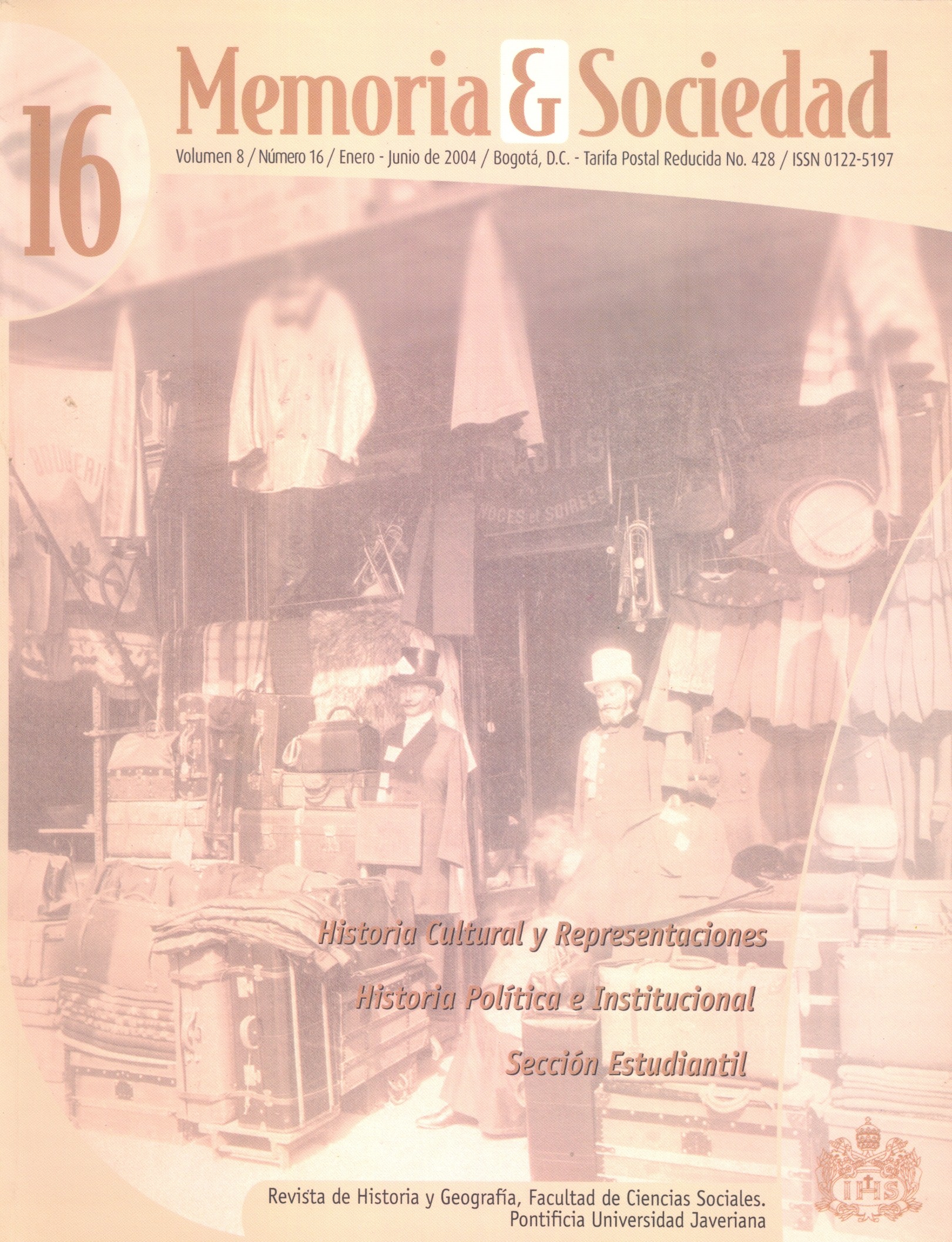Abstract
The Cabildo Abierto (open council) is a political participation device established by the 1991 Colombian Constitution with the purpose of extending the representative democracy limits through community participation on the local levels. This organization had its origin in medieval Spain. The Cabildo Abierto was transferred to America during the conquest and colonial periods, which allowed that local social groups to participate on the decisions that affected their daily life. This paper is a historical study about the Cabildo Abierto from its origin in the Iberian Peninsula to its applications in Nueva Granada as well as in the first part of the republican period.The journal Memoria y Sociedad is registered under a Creative Commons Attribution 4.0 International Public License. Thus, this work may be reproduced, distributed, and publicly shared in digital format, as long as the names of the authors and Pontificia Universidad Javeriana are acknowledged. Others are allowed to quote, adapt, transform, auto-archive, republish, and create based on this material, for any purpose (even commercial ones), provided the authorship is duly acknowledged, a link to the original work is provided, and it is specified if changes have been made. Pontificia Universidad Javeriana does not hold the rights of published works and the authors are solely responsible for the contents of their works; they keep the moral, intellectual, privacy, and publicity rights.
Approving the intervention of the work (review, copy-editing, translation, layout) and the following outreach, are granted through an use license and not through an assignment of rights. This means the journal and Pontificia Universidad Javeriana cannot be held responsible for any ethical malpractice by the authors. As a consequence of the protection granted by the use license, the journal is not required to publish recantations or modify information already published, unless the errata stems from the editorial management process. Publishing contents in this journal does not generate royalties for contributors.

